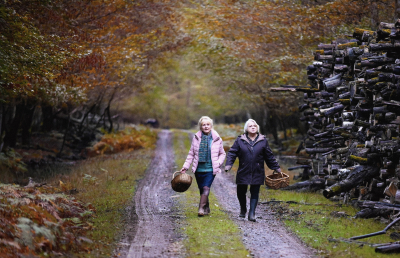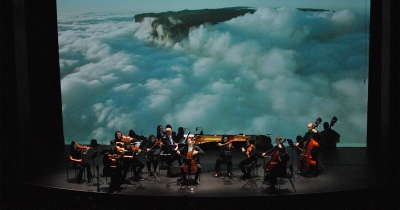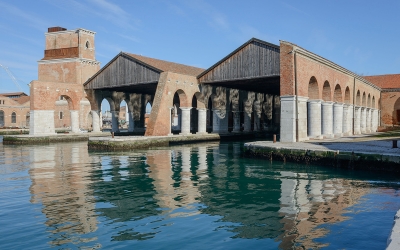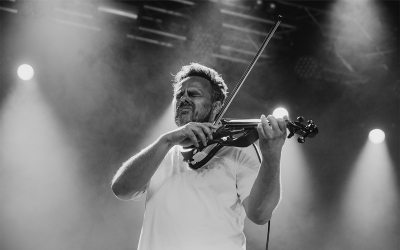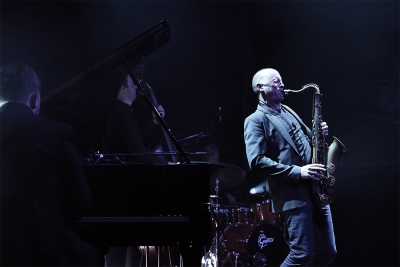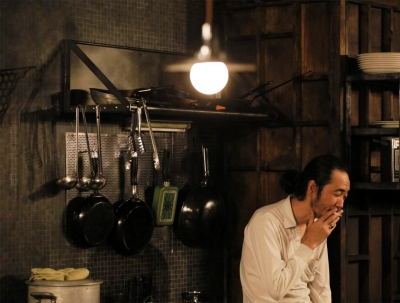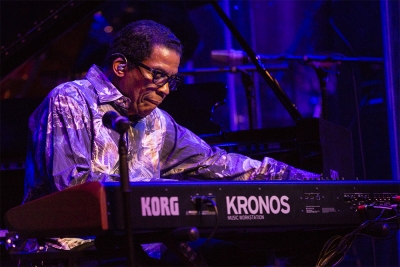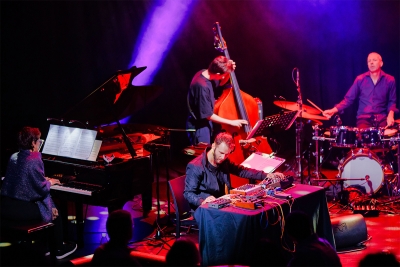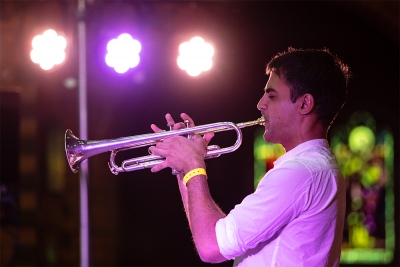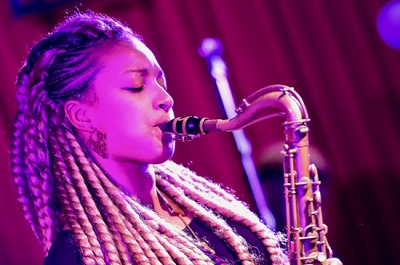Festivals
How does a ten-day festival in Townsville (Gurambilbarra) in tropical Far North Queensland, with a line-up of thirty-five top musicians from Australia and across the world, go from strength to strength in a difficult economic climate? Maybe it’s because the Australian Festival of Chamber Music, with a track record of more than thirty years, is so much more than a music event.
... (read more)The 59th Venice Art Biennale is an invitation to imagine. After the pandemic caused the event to be postponed for just the third time in its 127-year history (the other two instances being the two world wars), there was hope at the beginning of the year that this would be ‘the Biennale of rebirth’, marking a return to some kind of normal. Amid widespread global crisis, this could easily be dismissed as an optimistic goal ...
... (read more)It was never going to be a normal Melbourne International Jazz Festival. After all, there was nothing normal about the past two years. Having been forced to cancel in 2020, the festival made the decision to shift the 2021 event from its usual June timeslot to mid-October, perhaps hoping the extra few months might make a difference. The program was duly issued, tickets both offered and sold. Clearly, there would be nothing international about it, though it featured a strong interstate contingent. But in the end, lockdowns ensued, and October came and went. That might well have been the end of it. But, with tenacious resolve, MIJF re-grouped and scheduled a heavily stripped-down program for early December, this time playing it safe by sticking nearly exclusively to local musicians. There were few complaints. Advance bookings were strong in a city long deprived of live music, with some performances selling out within hours of the program’s launch.
... (read more)In 1961, Ornette Coleman was scheduled to play in Cincinnati. According to one story, the concert turned into a near-riot after patrons refused to pay, having observed the marquee out front billing the performance as ‘Free Jazz’. Whether apocryphal or not, it goes to the heart of the long-running confusion about jazz terminology. Free jazz, of course, refers to the experimental or avant-garde work of innovators, like Coleman, who rebelled against the conventions of bebop, hard bop, and modal jazz.
... (read more)At a time of increasingly bellicose nationalism and ever-proliferating flashpoints of contested history, it’s no surprise to find multiple works at this year’s OzAsia Festival exploring, and in some cases provoking, these global fault-lines. Light (★★☆), a collaboration between writer Thomas Henning of Melbourne’s Black Lung Theatre and Malaysian producer–designer collective TerryandTheCuz, takes as its point of departure the lives of Francis Light and his son William, the first surveyor-general of South Australia. The history books tell us that in 1786 Francis laid claim to the island of Penang on the north-west coast of Peninsular Malaysia, and that, fifty years later, William set out his plan for the city of Adelaide: a grid of wide streets and large public squares ringed by parklands. Less than three years later, William was dead from tuberculosis, the bulk of his papers and possessions having been destroyed in a fire at his North Terrace office.
... (read more)In 1959, Miles Davis entered Columbia’s 30th Street Studio in New York, with his sextet, and recorded what many consider to be the greatest jazz album of all time: Kind of Blue. It was an inspired idea to program a performance of this music, in celebration of the album’s sixtieth anniversary, at the twenty-second Melbourne International Jazz Festival ...
... (read more)It was a bold move by Stonnington Jazz to program an all-female/non-binary performance for the Festival’s opening concert: War Cry. Jazz, like much else, has come in for its fair share of criticism in the #MeToo era, its historical icons – bar a few exceptions – made up mostly of male musicians ...
... (read more)Now in its twenty-ninth year, the Wangaratta Festival of Jazz and Blues continues to deliver programming that is innovative, ambitious, and far-reaching. That a long-running Festival of this scale and significance takes place annually in a regional Victorian city says much about the tenacity and dedication of the Festival’s artistic team ...
... (read more)One of the key issues addressed by the twenty-first Melbourne International Jazz Festival (MIJF) is the role of women in jazz. In the wake of the #MeToo movement, there has been much debate around gender equality in jazz, including inevitable references to jazz as a ‘boys’ club’. While there has never been a shortage ...
... (read more)

